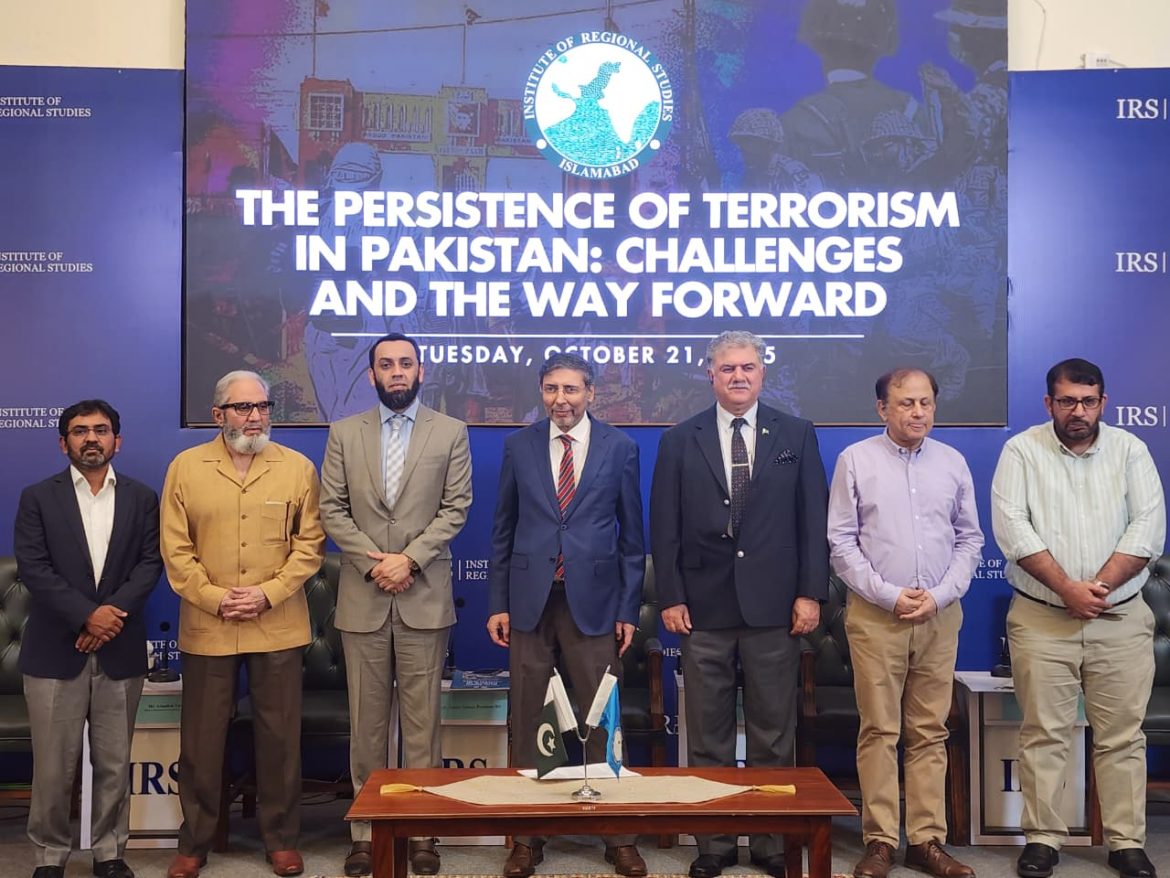WNAM REPORT: The Institute of Regional Studies (IRS), Islamabad, organized a high-level seminar titled “The Persistence of Terrorism in Pakistan: Challenges and the Way Forward.” The event brought together senior military officials, strategic analysts, policymakers, and academics to deliberate on the evolving dynamics of terrorism and Pakistan’s counter-terrorism strategies.
Speaking on the occasion, Mr. Attaullah Tarar, Federal Minister for Information and Broadcasting, reaffirmed the Government of Pakistan’s unwavering commitment to eradicating terrorism in all its forms and manifestations. He emphasized that Pakistan’s sacrifices in the global fight against terrorism stand unparalleled and reflect the nation’s collective resolve to safeguard peace, stability, and progress. He praised the armed forces for their sacrifices and reaffirmed the government’s unity and resolve to eliminate terrorism. Citing external support from India and Afghanistan to militant groups, he said Pakistan remains a steadfast against terrorism in all its forms. The minister stressed the need for a cohesive, nationwide implementation of the National Action Plan to ensure lasting peace.
Ambassador Jauhar Saleem, President IRS, noted that terrorism in Pakistan remains a serious threat, with hundreds of attacks reported this year. He attributed this majorly to external proxies and expressed concern over the Taliban’s failure to uphold counterterrorism commitments. He noted that Pakistan was pursuing active diplomacy alongside kinetic operations , and expressed cautious optimism in the wake of Doha ceasefire and ahead of the Istanbul dialogue, stressing that Afghanistan must choose between supporting terrorism and becoming falling prey to Indian machinations aand fostering peaceful and cooperative relations with Pakistan, which would be a sine qua non for its stability and prosperity.
Lt. Gen. Khalid Rabbani (Retd.), former Corps Commander Peshawar, emphasized that a whole-of-nation approach is imperative for the success of any counterterrorism or counterinsurgency operation. He stressed that the fight against terrorism cannot be won by the security forces alone and requires collective resolve, political consensus, and societal resilience. Lt. Gen. Rabbani further underscored that Pakistan and Afghanistan must realize the interdependence of their security, as instability in one directly undermines peace and stability in the other.
Maj. Gen. (Retd.) Inam Ul Haq noted a sharp rise in cross-border terrorism, with 585 Afghan-backed attacks reported up to October 2025, compared to 521 in 2024 and 306 in 2023. He said that during October 11–15, IEA forces, aided by the TTP and other militants, launched unprovoked attacks along the Pakistan-Afghanistan border, reflecting active collusion between the Taliban regime and anti-Pakistan networks.
Dr. Muhammad Feyyaz noted that terrorism remains under-studied in Pakistan due to limited awareness of its long-term societal and state impacts. He stressed the need to build academic understanding of terrorism’s persistence and to strengthen linkages between academia and policymakers for more informed, policy-relevant research.
Mr. Abdul Basit, Senior Associate Fellow at RSIS, Singapore, observed that terrorism in Pakistan persists due to regional geopolitics, ideological factors, and governance issues in Afghanistan. He urged Pakistan to revamp its counterterrorism framework to address emerging extremist threats, noting that current non-kinetic responses lag behind. He emphasized the need for a balanced strategy combining kinetic and non-kinetic measures to counter the evolving and multidimensional nature of terrorism in the region.


